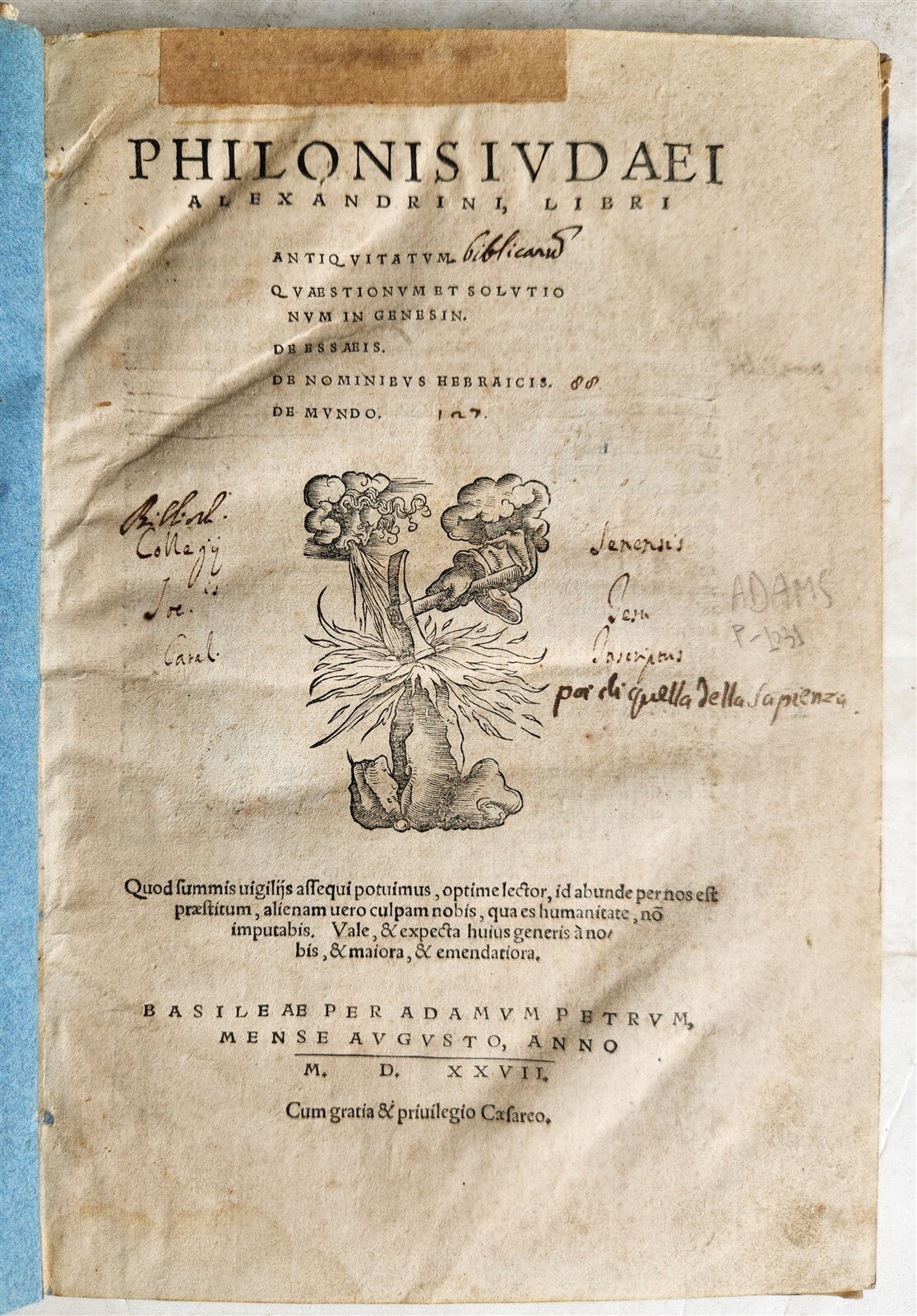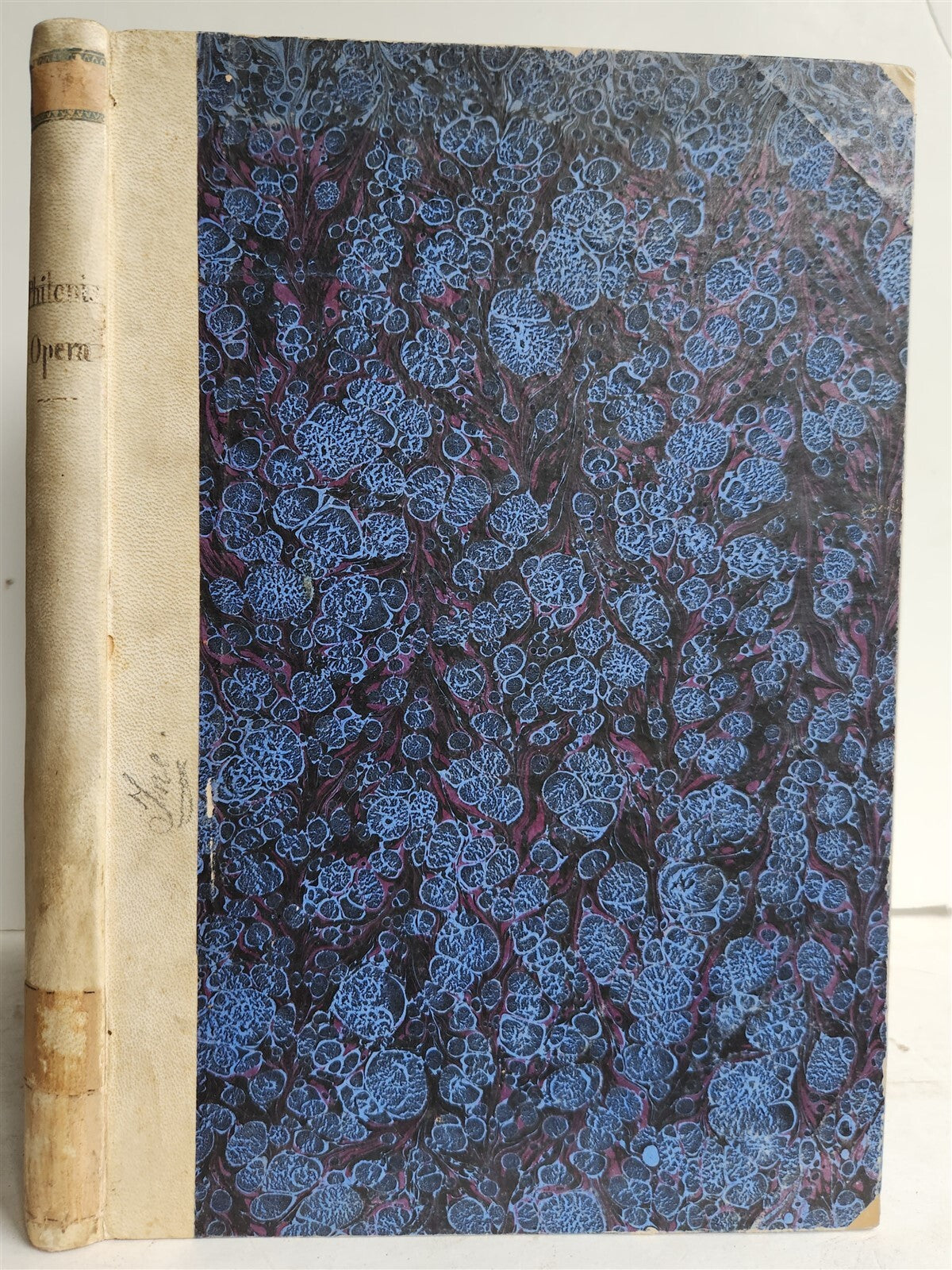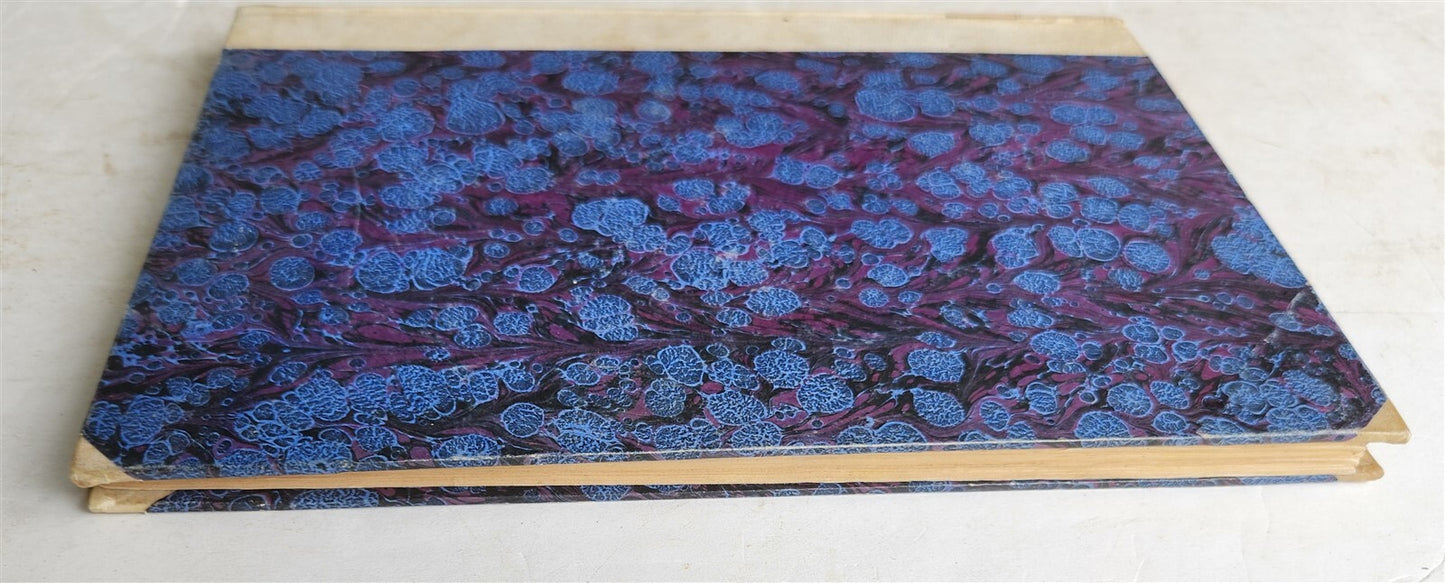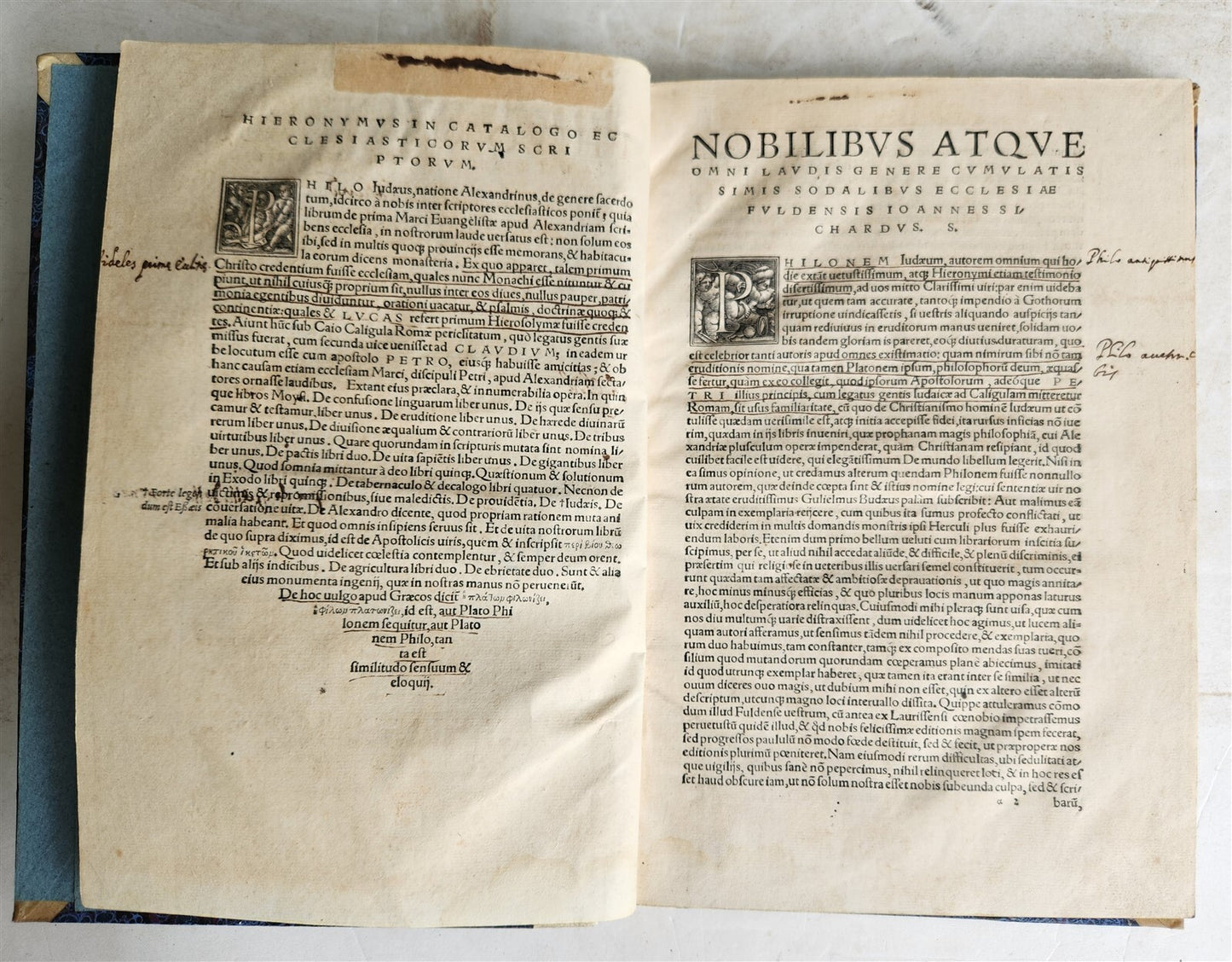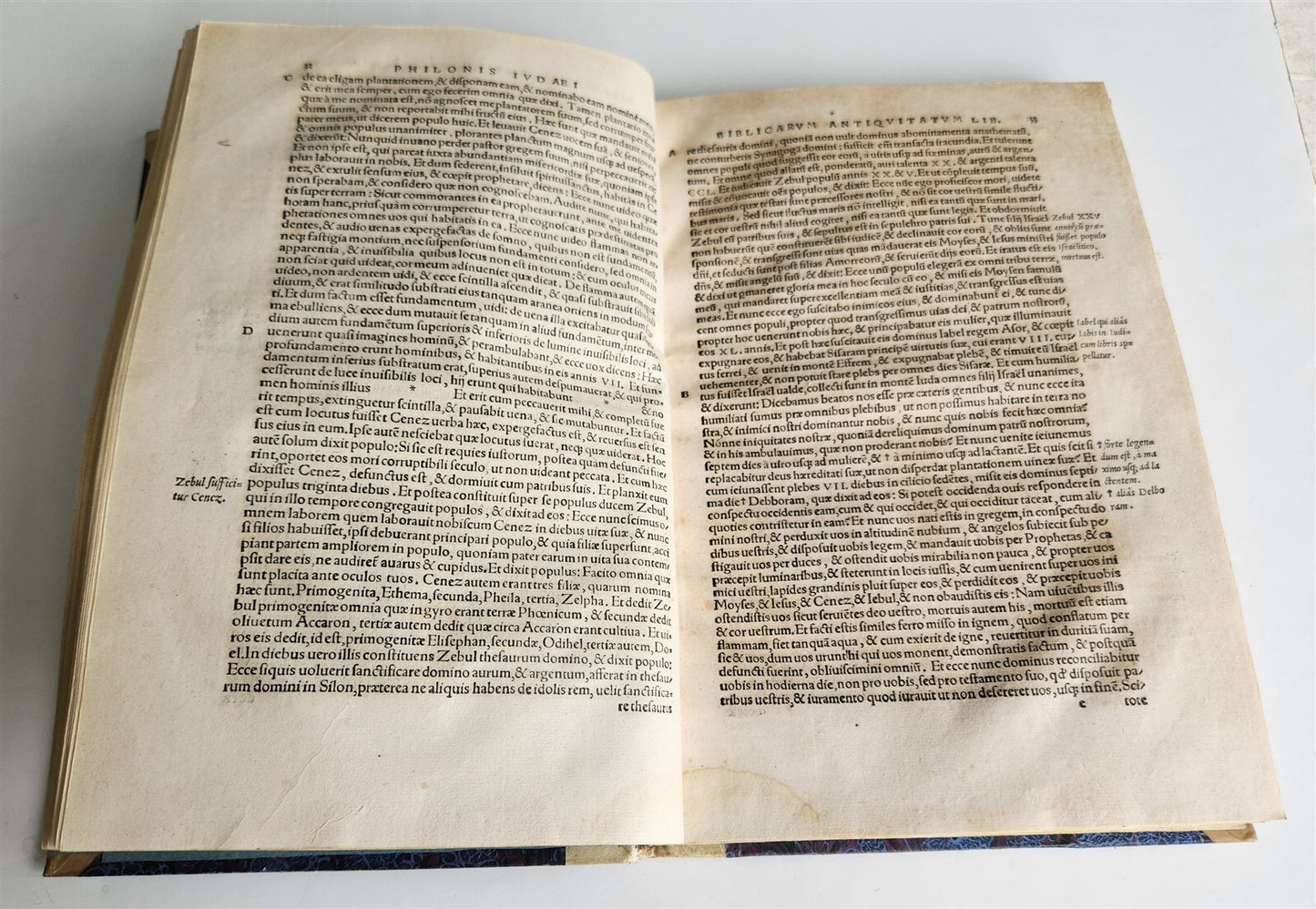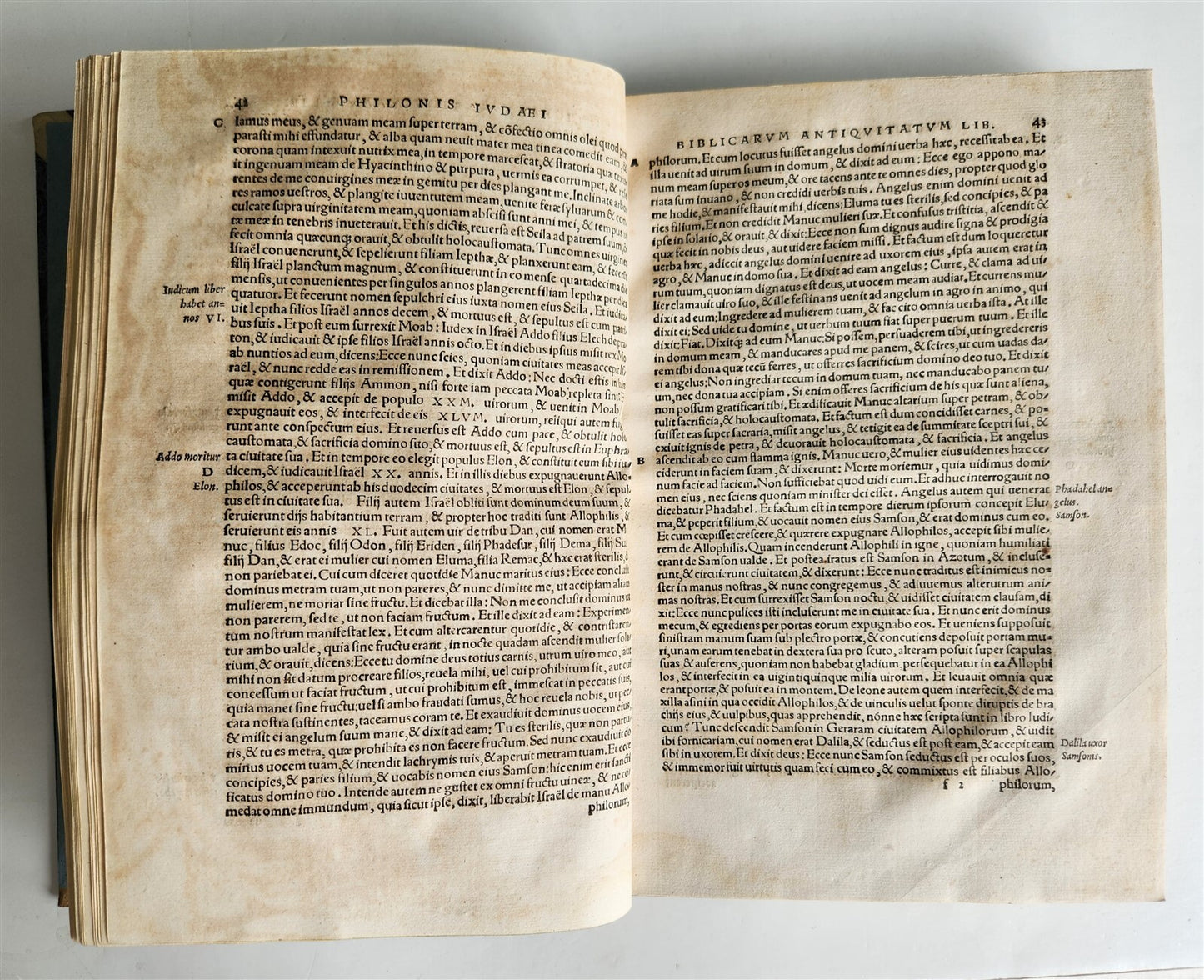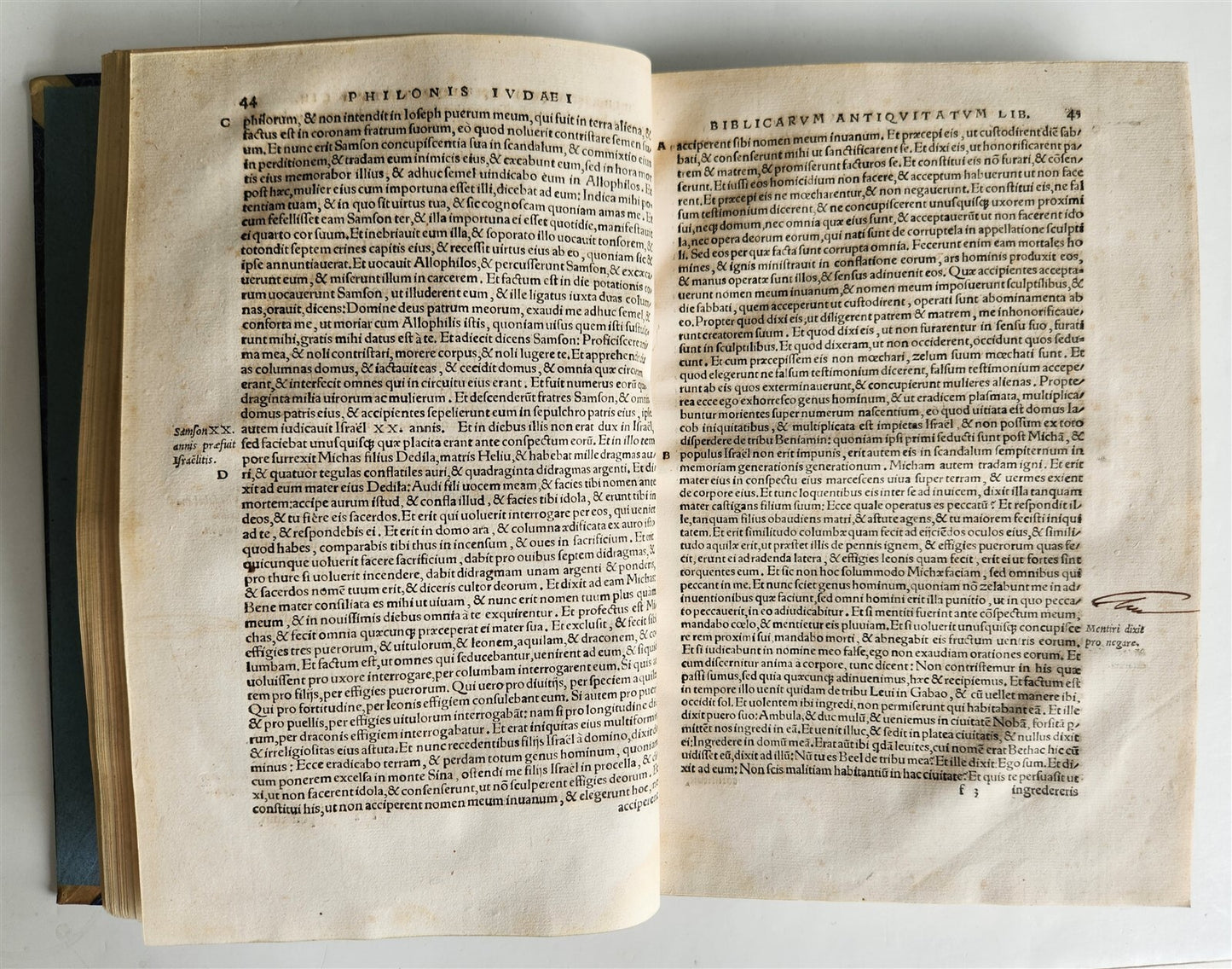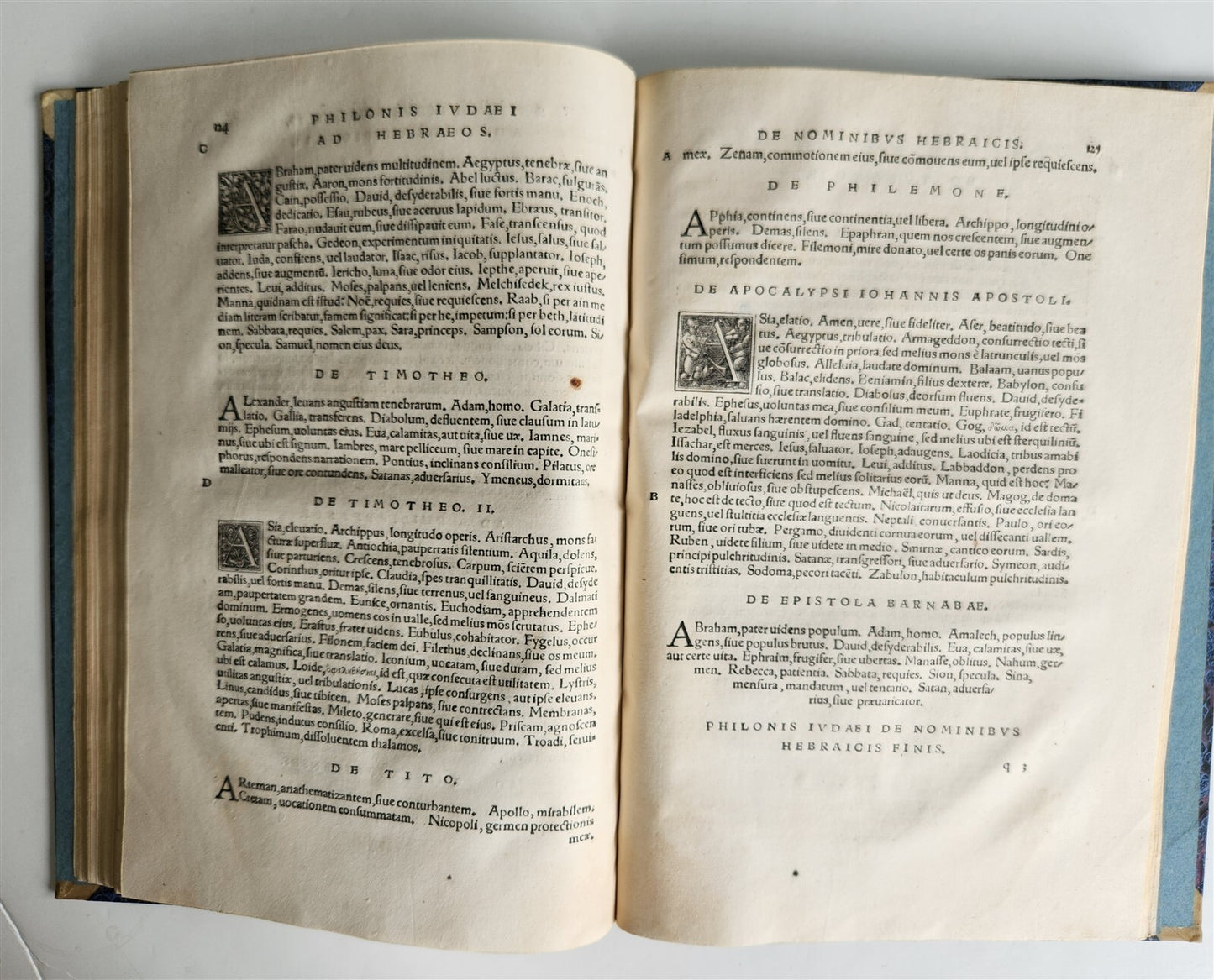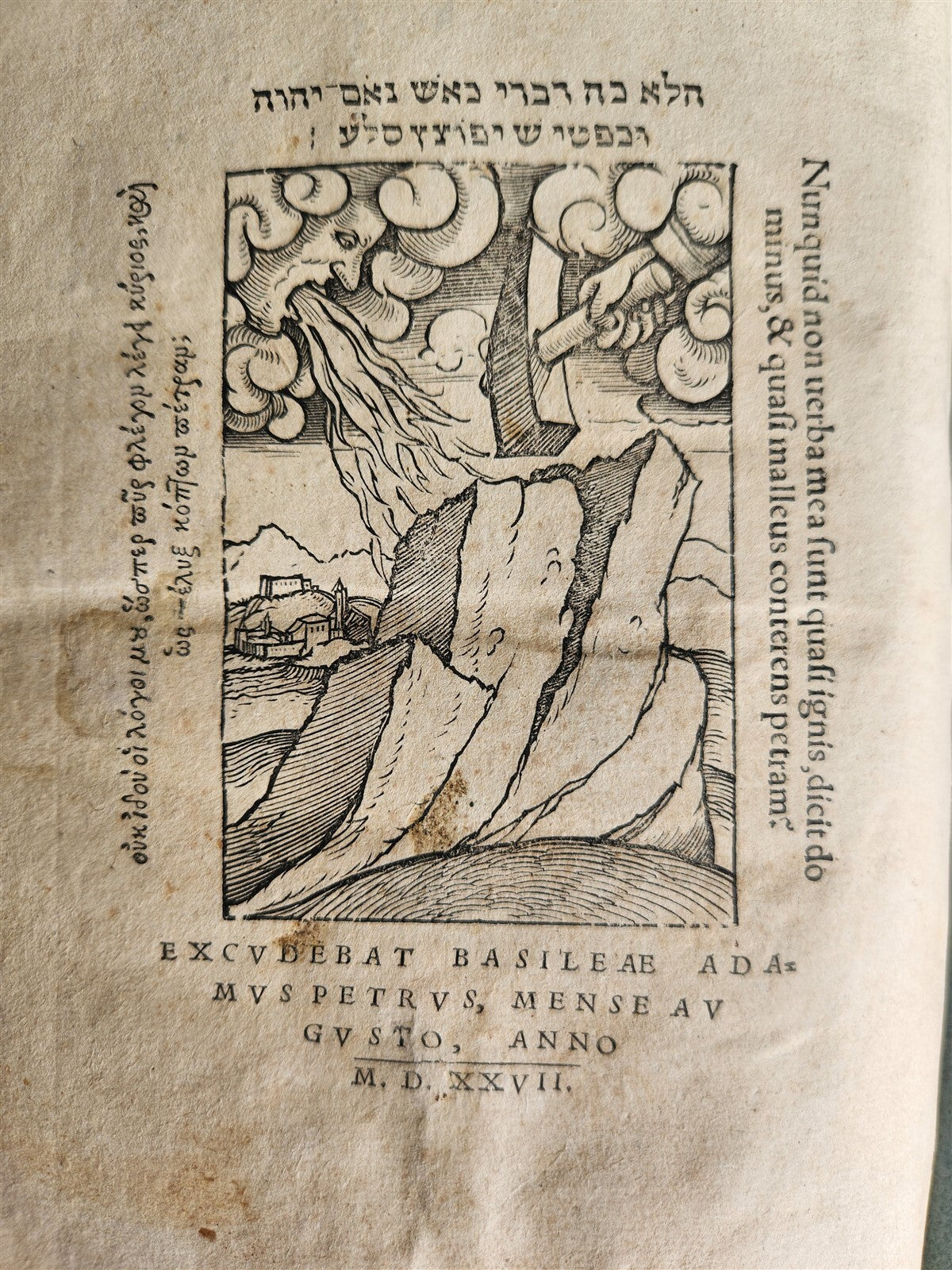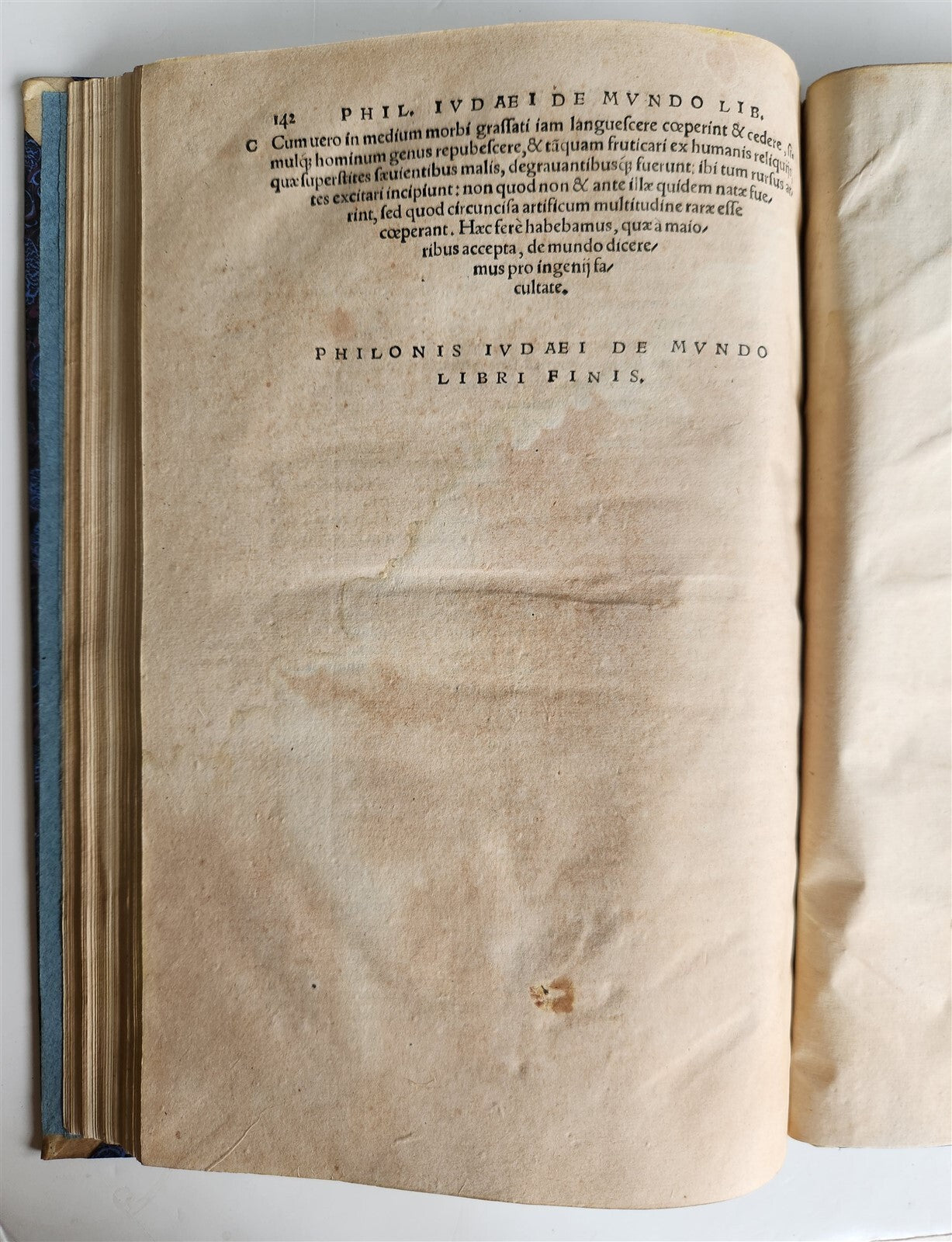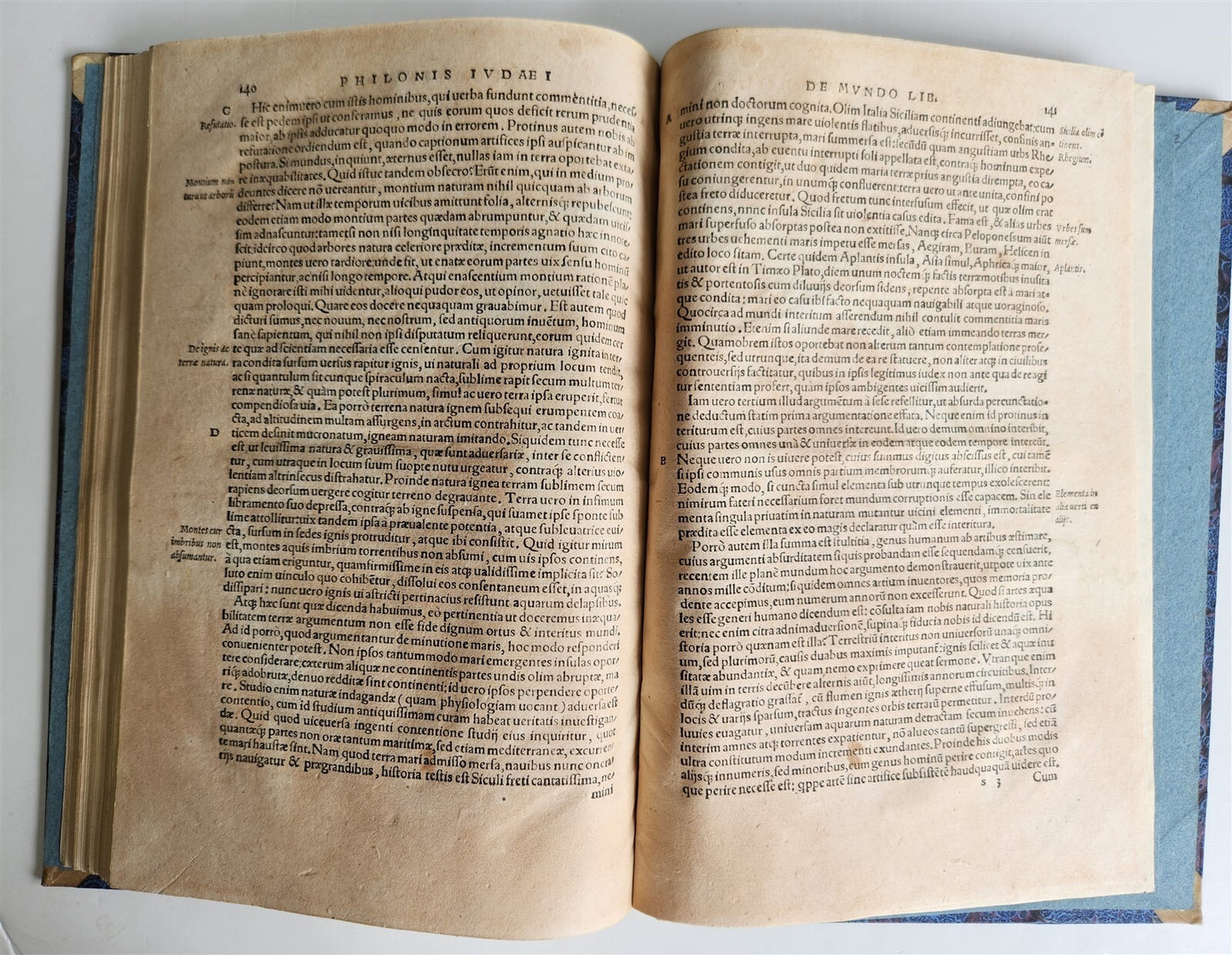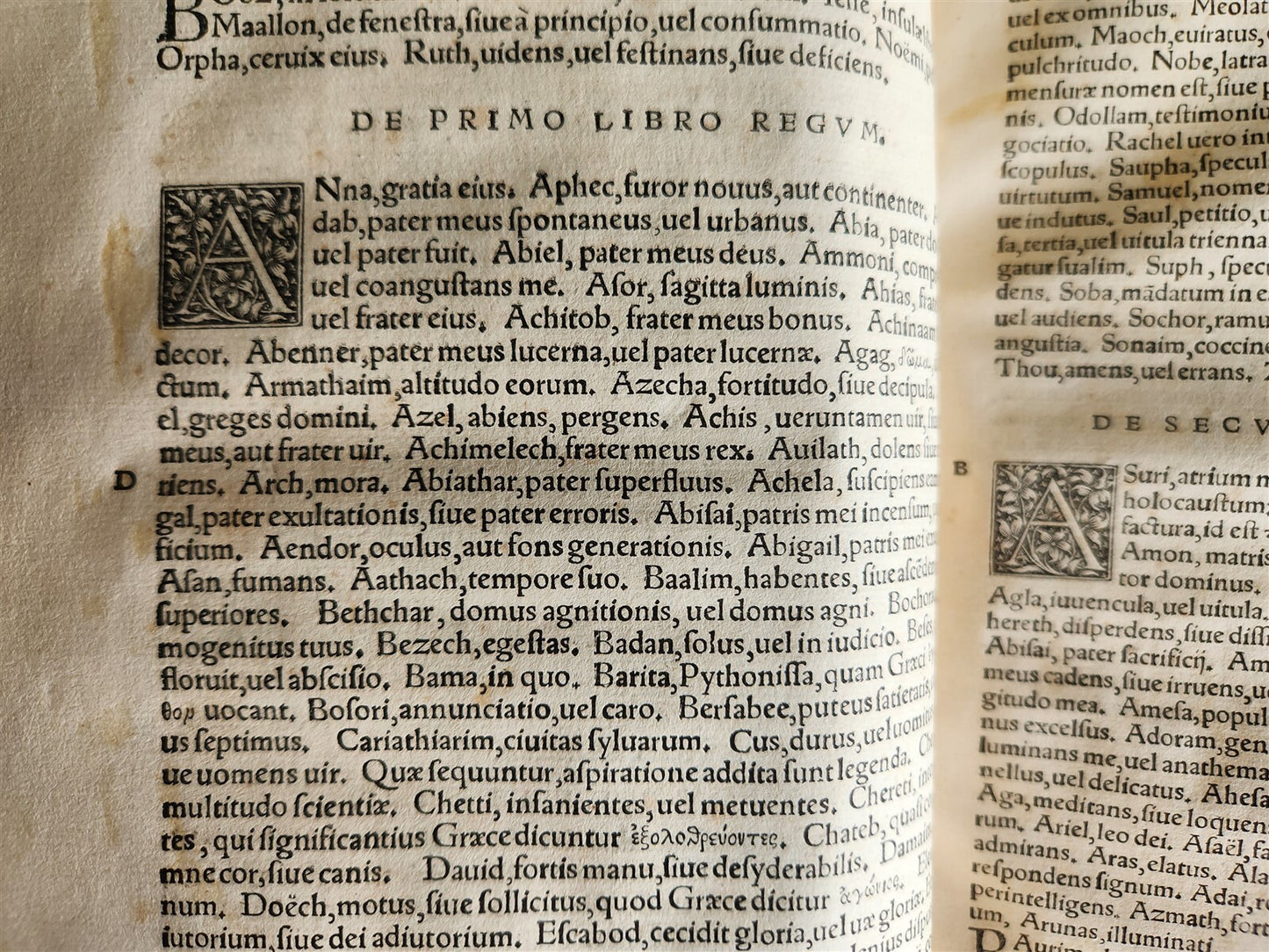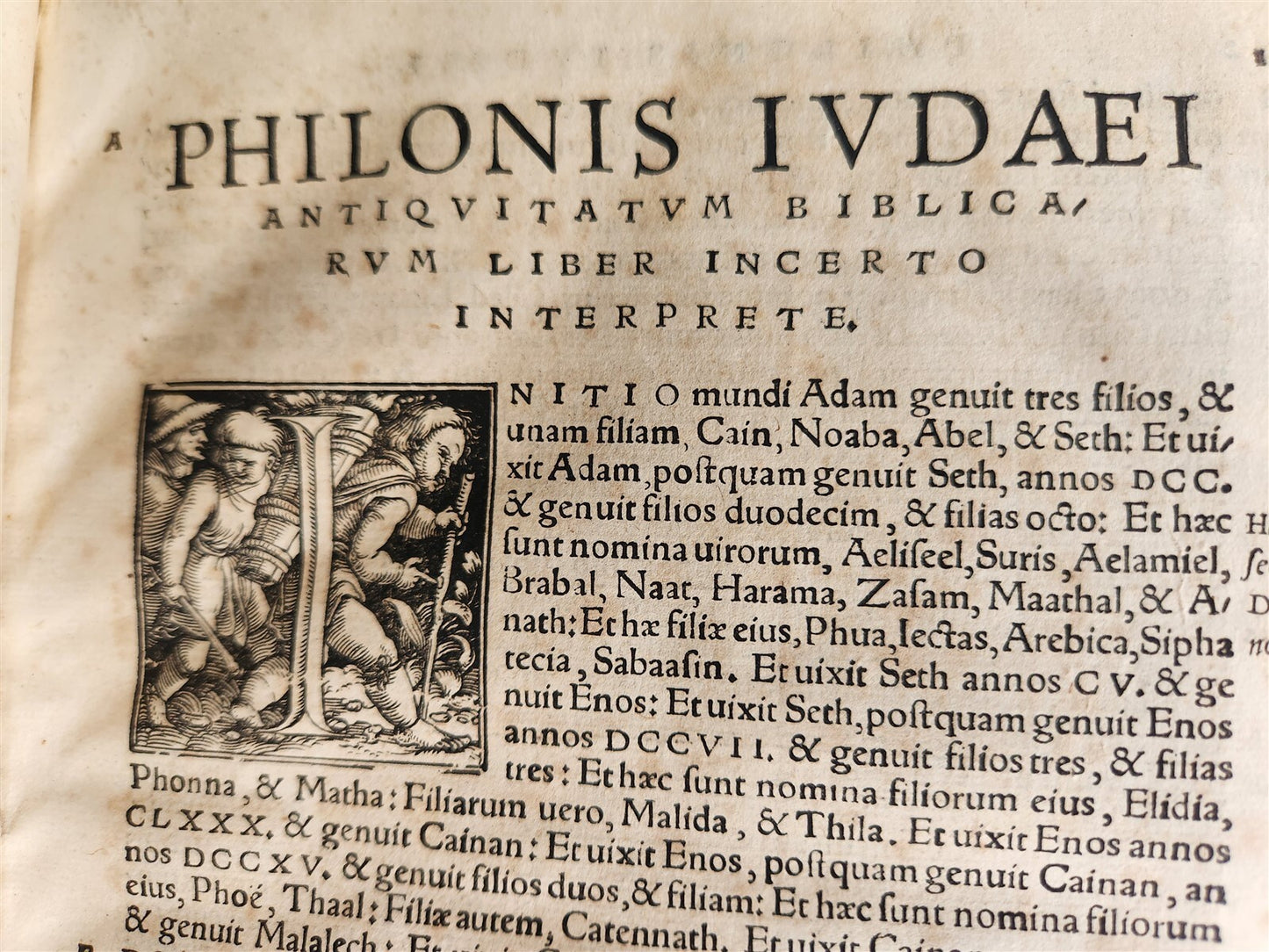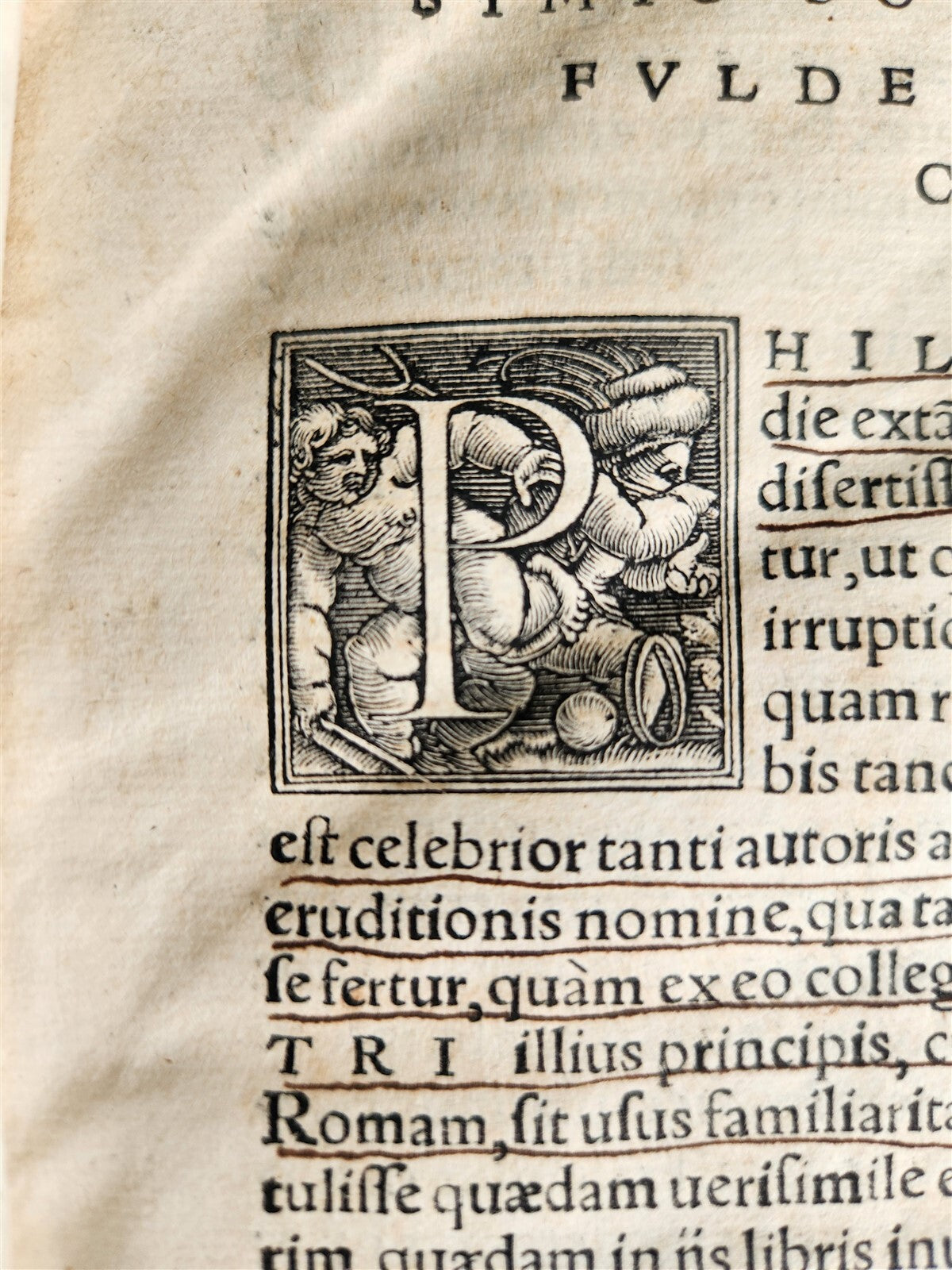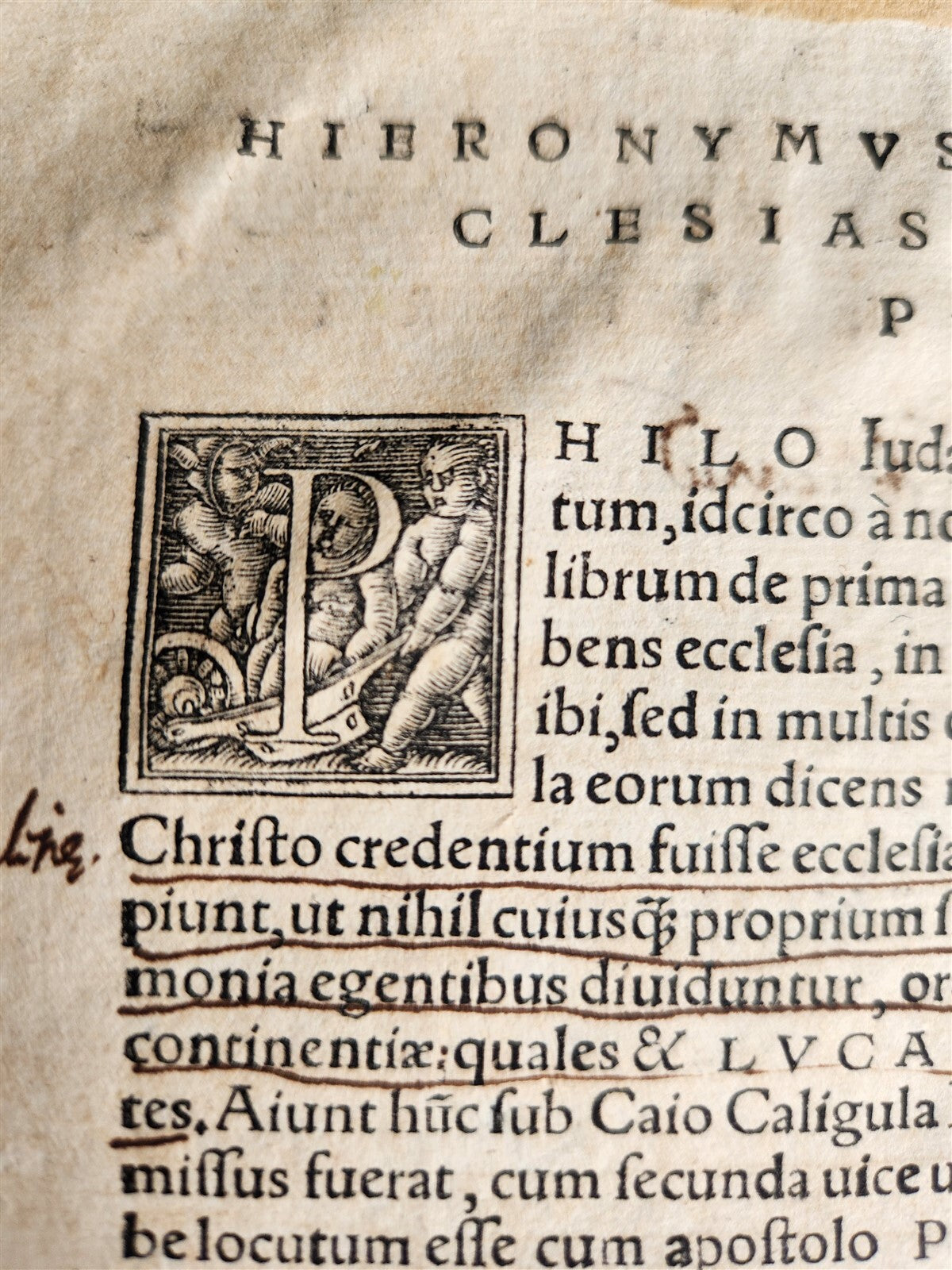Motka
1527 POST-INCUNABULA PHILO of ALEXANDRIA antique Philonis Iudaei JUDAICA
1527 POST-INCUNABULA PHILO of ALEXANDRIA antique Philonis Iudaei JUDAICA
Regular price
$599.90 USD
Regular price
$857.00 USD
Sale price
$599.90 USD
Unit price
per
Couldn't load pickup availability
Philonis Iudaei Alexandrini libri : Antiquitatum. Quaestionum et solutionum in Genesin. De Essaeis. De nominibus hebraicis. De mundoby Philo of AlexandriaBasil; 1527[4], 142, [2] pp.Size 8 by 11 1/4 inchesLater half vellum over marbled boards, new endpapers, spine with manuscript label good condition, some toning and foxing, a few leaves with faded dampstain at the margin, title page with minor repair at the upper marginText in Latin===============================================Philo of Alexandria (c. 15 BCE to c. 45 CE) was a Jewish-Hellenistic philosopher who lived in Alexandria during the Roman Empire. The biographical information we have about him is scarce and is based on the little he wrote about himself in his books and his mention in the writings of Yosef ben Matityahu (Josephus). According to the latter, he was from an aristocratic and wealthy family who traded, and he also says that Philo was "a most famous man."Its principles conform to Rambam’s thirteen principles of faith and yet he is not considered part of the rabbinic tradition, and has over the years become a major source of inspiration for the fathers of the Christian Church in shaping their religious worldview. From reading his writings it is estimated that he visited the Temple in Jerusalem only once in his lifetime. Most of his works deal with the Torah, but have been preserved by the Church.=================The only event in Philo's life that can be decisively dated is his representation of the Alexandrian Jews in a delegation to the Roman emperor Caligula in 40 CE following civil strife between the Jewish and Greek communities of Alexandria.Philo was a leading writer of the Hellenistic Jewish community in Alexandria, Egypt. He wrote expansively in Koine Greek on philosophy, politics, and religion in his time; specifically, he explored the connections between Greek Platonic philosophy and late Second Temple Judaism. For example, he maintained that the Greek-language Septuagint and the Jewish law still being developed by the rabbis of the period together serve as a blueprint for the pursuit of individual enlightenment.Philo's deployment of allegory to harmonize Jewish scripture, mainly the Torah, with Greek philosophy was the first documented of its kind, and thereby often misunderstood. Many critics of Philo assumed his allegorical perspective would lend credibility to the notion of legend over historicity.Philo often advocated a literal understanding of the Torah and the historicity of such described events, while at other times favoring allegorical readings.=====================================================Please see my other auctions Thank You
Refund Policy: We will issue a FULL REFUND, 100% money back if you are not satisfied with your purchase. Items must be returned to us within 20 days in order to receive a refund or replacement. Buyer is responsible for shipping costs.
--------------------------------------------------------------------------------------------------------------------------------------------------------------------------------------------------------------------------------------------------------------------------------------------------------------------------------------------------------------------------------------------------------------------------------------------------------------------------------------------------------------------------------------------------------------------------------------------------------------------------------------------------------------------------------------------------------------------------------------------------------------------------------------------------------------------------------------------------------------------------------------------------------------------------------------------------------------------------------------------------------------------------------------------------------------------------------------------------------------------------------------------------------------------------------------------------------------------------------------------------------------------------------------------------------------------------------------------------------------------------------------------------------------------------------------------------------------------------------------------------------------------------------------------------------------------------------------------------------------------------------------------------------------------------------------------------------------------------------------------------------------------------------------------------------------------------------------------------------------------------------------------------------------------------------------------------------------------------------------------------------------------------------------------------------------------------------------------------------------------------------------------------------------------------------------------------------------------------------------------------------------------------------------------------------------------------------------------------------------------------------------------------------------------------------------------------------------------------------------------------------------------------------------------------------------------------------------------------------------------------------------------------------------------------------------------------------------------------------------------------------------------------------------------------------------------------------------------------------------------------------------------------------------------------------------------------------------------------------------------------------------------------------------------
Philonis Iudaei Alexandrini libri :
Antiquitatum.
Quaestionum et solutionum in Genesin.
De Essaeis.
De nominibus hebraicis.
De mundo
by Philo of Alexandria
Basil; 1527
[4], 142, [2] pp.
Size 8 by 11 1/4 inches
Later half vellum over marbled boards, new endpapers, spine with manuscript label
good condition, some toning and foxing, a few leaves with faded dampstain at the margin, title page with minor repair at the upper margin
Text in Latin
===============================================
Philo of Alexandria (c. 15 BCE to c. 45 CE) was a Jewish-Hellenistic philosopher who lived in Alexandria during the Roman Empire. The biographical information we have about him is scarce and is based on the little he wrote about himself in his books and his mention in the writings of Yosef ben Matityahu (Josephus). According to the latter, he was from an aristocratic and wealthy family who traded, and he also says that Philo was "a most famous man."
Its principles conform to Rambam’s thirteen principles of faith and yet he is not considered part of the rabbinic tradition, and has over the years become a major source of inspiration for the fathers of the Christian Church in shaping their religious worldview. From reading his writings it is estimated that he visited the Temple in Jerusalem only once in his lifetime.
Most of his works deal with the Torah, but have been preserved by the Church.
=================
The only event in Philo's life that can be decisively dated is his representation of the Alexandrian Jews in a delegation to the Roman emperor Caligula in 40 CE following civil strife between the Jewish and Greek communities of Alexandria.
Philo was a leading writer of the Hellenistic Jewish community in Alexandria, Egypt. He wrote expansively in Koine Greek on philosophy, politics, and religion in his time; specifically, he explored the connections between Greek Platonic philosophy and late Second Temple Judaism. For example, he maintained that the Greek-language Septuagint and the Jewish law still being developed by the rabbis of the period together serve as a blueprint for the pursuit of individual enlightenment.
Philo's deployment of allegory to harmonize Jewish scripture, mainly the Torah, with Greek philosophy was the first documented of its kind, and thereby often misunderstood. Many critics of Philo assumed his allegorical perspective would lend credibility to the notion of legend over historicity.
Philo often advocated a literal understanding of the Torah and the historicity of such described events, while at other times favoring allegorical readings.
=====================================================
Please see my other auctions
Thank You
Refund Policy: We will issue a FULL REFUND, 100% money back if you are not satisfied with your purchase. Items must be returned to us within 20 days in order to receive a refund or replacement. Buyer is responsible for shipping costs.
Powered by SixBit's eCommerce Solution
View full details
- Topic:Judaism
- Binding:Vellum
- Subject:Philosophy
- Language:Latin
- Original/Facsimile:Original
- Year Printed:1527
